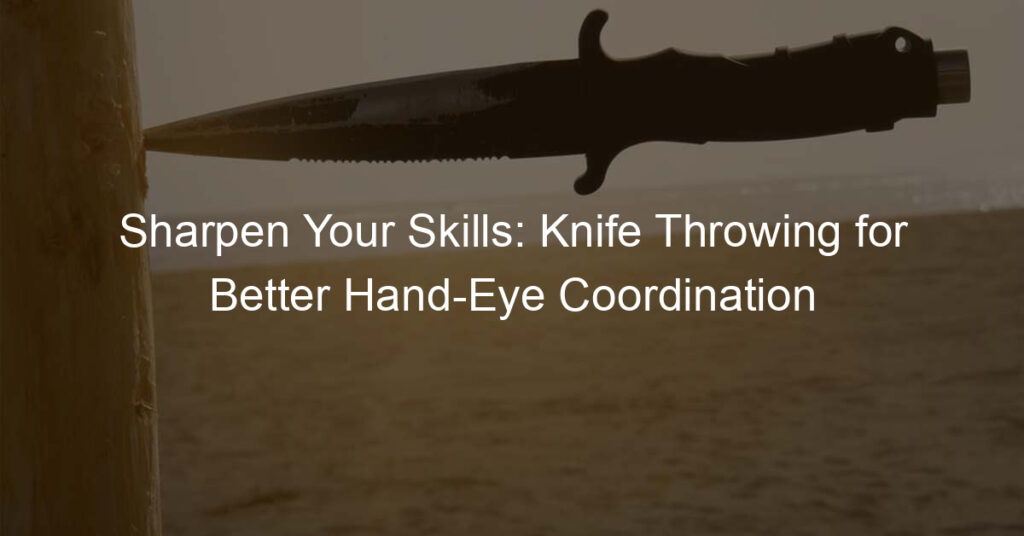Introduction to Throwing Knives Legality
As thrilling as they may seem, are not just tools for entertainment or sport. They also carry with them a set of legal considerations that vary widely across different regions. This article aims to shed light on the concept of throwing knives and why their legality is a significant concern.
-
- The concept of throwing knives
They are distinct from regular knives in their weight, balance, and design. While they are often associated with circus acts or martial arts, they are also used in various competitive sports. Knife throwing, as a sport, has gained popularity over the years, leading to an increased interest in throwing knives.
-
- Why the legality of throwing knives is a concern
While they are tools for sport and entertainment, in the wrong hands, they can become dangerous weapons. This has led to varying degrees of regulation around the world, with some countries allowing their possession and use, while others have strict restrictions or outright bans. The legality of throwing knives is for anyone interested in the sport to ensure they are not inadvertently breaking the law.
Are Throwing Knives Illegal: A Global Perspective
Throwing Knives Law in the United States
-
- Overview of US laws on throwing knives
The legality of owning, carrying, and throwing knives varies from state to state. Some states, like Arizona and New Hampshire, have relaxed laws and allow the possession and use of throwing knives. Other states like California and New York have stricter laws, often limiting the length of the knife or outright banning them.
Even within a state, laws can vary at the county or city level. For instance, in Los Angeles, California, it’s illegal to openly carry a throwing knife, while it’s legal in other parts of the state. Always check with local law enforcement or legal counsel to ensure you’re in compliance with the law.
-
- Case study: Legal issues involving throwing knives
Let’s consider a real-life example to understand the legal complexities surrounding throwing knives. In 2003, a man in New York was arrested for possession of a throwing knife. The case, known as “People v. Richards,” went to the New York Court of Appeals. The court ruled that the knife was not a “dangerous knife” under New York law, and the man was acquitted.
This case demonstrates the gray areas in knife laws and highlights the importance of understanding your local and state laws. It’s always better to be informed than to find yourself on the wrong side of the law.
While throwing knives are not universally illegal in the United States, their legality varies greatly depending on the state, county, or city. Always ensure you are familiar with your local laws before purchasing or using a throwing knife.
Legal Status of Throwing Knives in Europe
-
- How European Countries Regulate Throwing Knives
The laws governing the possession and use of throwing knives differ significantly. Some countries, like Switzerland, allow the possession of throwing knives without any restrictions. Other countries, such as the Netherlands, have strict laws prohibiting the possession of throwing knives without a valid reason.
Even within a single country, laws can vary. For instance, in Germany, the legality of throwing knives is determined by each state’s individual laws. Research the specific laws of the country you are in to avoid any legal complications.
-
- Example: Throwing Knives Regulation in the UK
The laws surrounding throwing knives are quite clear. According to the Criminal Justice Act 1988, it is illegal to sell, hire, lend, or gift any knife with a blade length exceeding 3 inches to anyone under the age of 18. This includes throwing knives.
The Prevention of Crime Act 1953 prohibits the possession of an offensive weapon, including a throwing knife, in a public place without lawful authority or reasonable excuse. Violation of these laws can result in severe penalties, including imprisonment.
For more detailed information, you can visit the UK’s knife legislation page on Wikipedia.
The legal status of throwing knives in Europe is complex and varies from one country to another. Familiarize yourself with the laws of the country you’re in to ensure you’re not inadvertently breaking any rules.
Are Throwing Knives Prohibited in Asia?
-
- Asian laws on throwing knives
In many places, it is illegal to carry a knife in public without a valid reason. However, the definition of a “valid reason” can vary. For example, in some countries, carrying a knife for self-defense may be considered a valid reason, while in others it may not.
The laws can be even more complex in throwing knives specifically. In some countries, throwing knives may be classified as “dangerous weapons” or “prohibited items,” making it illegal to own or carry them without a special permit. In others, they may be completely legal to own, but illegal to carry in public.
-
- Case study: Throwing knives legal issues in Japan
A good example of a country with strict laws regarding throwing knives. According to the Sword and Firearm Control Law, it is generally illegal to possess a blade that is longer than 5.5 centimeters without a permit. This law applies to all types of knives, including throwing knives.
Carrying any type of knife in public without a valid reason is also illegal. The penalties for violating these laws can be severe, including imprisonment and hefty fines.
There are exceptions to these laws. Martial arts practitioners who are officially recognized by a national or international martial arts organization may be allowed to possess and carry throwing knives for the purpose of training and competition. But again, these exceptions are strictly regulated and require a special permit.
Illegal Throwing Knives: The Consequences
- Legal repercussions of owning illegal throwing knives
Owning illegal throwing knives can lead to serious legal consequences. In many jurisdictions, it is considered a criminal offense and can result in hefty fines, probation, and even imprisonment. The severity of the punishment often depends on the specific laws of the region, the type of knife, and the circumstances surrounding its possession.
In some states in the U.S., it is illegal to own throwing knives with blades longer than a certain length. Violation of this law can lead to a misdemeanor charge, which can result in up to a year in jail and a fine of up to $1,000. In more severe cases, if the knife is used in the commission of a crime, it can lead to a felony charge, which carries much stiffer penalties.
- Case study: Prosecution for illegal possession of throwing knives
Let’s take a look at a real-life example of the legal consequences of owning illegal throwing knives. In 2018, a man in New York was prosecuted for illegal possession of throwing knives. According to the New York Penal Law, it is illegal to possess any “dangerous knife” with intent to use it unlawfully against another. The man was found guilty and sentenced to six months in jail and a $1,000 fine.
This case serves as a stark reminder of the potential legal consequences of owning and carrying illegal throwing knives. It underscores the importance of understanding and adhering to local laws regarding knife possession and use.
Legality of Throwing Knives: Key Takeaways
-
- Knowing the law
Vary greatly from one place to another, and what is legal in one area may be illegal in another. Being aware of the laws in your area can help you avoid legal trouble and ensure that you are using your throwing knives responsibly. In some places, it’s legal to own throwing knives, but it’s illegal to carry them in public. Wikipedia provides a comprehensive overview of knife legislation around the world.
-
- How to stay informed about throwing knives regulation
Laws can change, and new regulations can be introduced. Regularly check for updates to the laws in your area. You can do this by visiting your local government’s website or contacting local law enforcement agencies. Joining a local knife throwing club or online forum can also be a good way to stay informed about changes in the law.
Conclusion: Throwing Knives Illegal Status
-
- Summarizing the legal issues surrounding throwing knives
They are considered weapons in many jurisdictions. The laws governing their possession, use, and transportation vary greatly from one place to another. In some countries, they are completely legal, while in others, they are strictly prohibited. Even within a single country, the laws can differ from state to state or city to city. Anyone interested in throwing knives to be aware of these laws and abide by them. Ignorance of the law is not an excuse, and the penalties for violating these laws can be severe. More information about knife legislation can be found here.
-
- Final thoughts on the legality of throwing knives
While the legal landscape surrounding throwing knives is complex, it is not insurmountable. With careful research and due diligence, enthusiasts can enjoy this hobby while staying on the right side of the law. It is always recommended to consult with a legal expert or local law enforcement agency if you have any doubts about the legality of owning or using throwing knives in your area.







